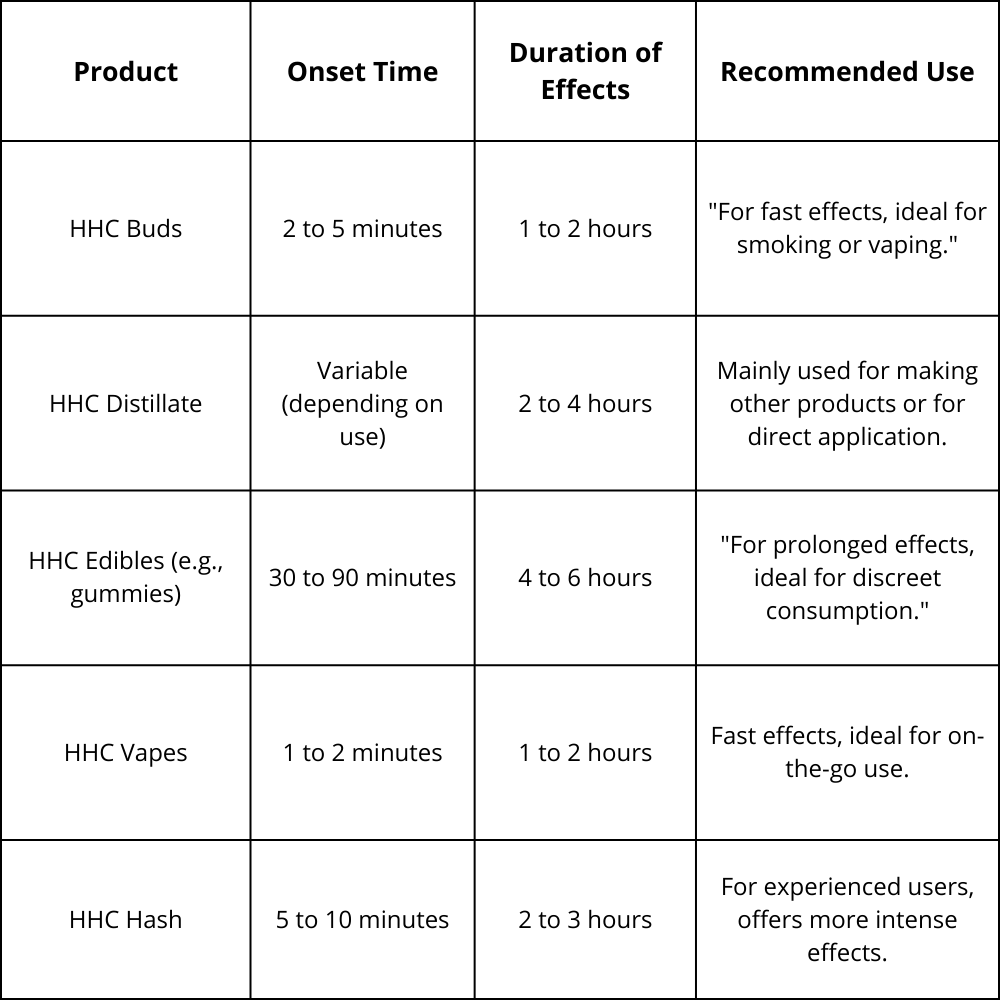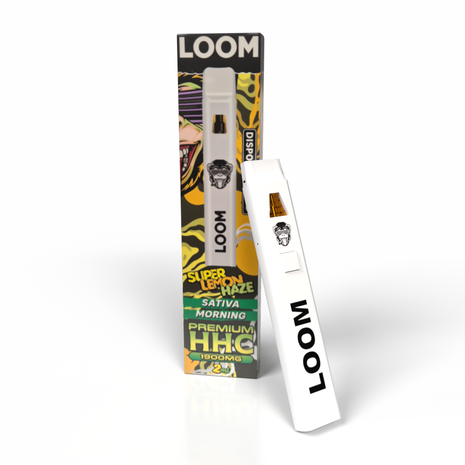The Differences Between THC and HHC: A Complete Guide
What is HHC?
HHC, or Hexahydrocannabinol, is a cannabinoid that forms through the hydrogenation of THC. This relatively new cannabinoid offers a mild psychoactive effect and is often promoted as an alternative to THC. But how does HHC really work, and how does it differ from THC?
Discover our complete selection of HHC products – from gummies to vapes! Find the right product for your needs.
Go to HHC categoryEffects of HHC
HHC, or Hexahydrocannabinol, exerts its effects by binding to CB1 and CB2 receptors in the endocannabinoid system. HHC has both psychoactive and potentially therapeutic effects. Compared to THC, HHC’s effects are often described as milder and less intense.
Comparison with THC and CBD
While both HHC and THC are psychoactive, HHC differs from THC in its chemical stability. HHC is hydrogenated, making it more resistant to oxidation and increasing its shelf life. In contrast, CBD has no psychoactive effects but is valued for its calming and anti-inflammatory properties. HHC is often considered a middle ground between THC and CBD. It offers mild psychoactive effects that are less intense than THC but still more relaxing than CBD. Users report a euphoric feeling without the strong mental impairment that THC can cause.

Production and Natural Occurrence
Unlike THC and CBD, which can be directly extracted from the cannabis plant, HHC is naturally present only in very small amounts. It is primarily produced through the hydrogenation of THC or CBD in a chemical process. This process makes HHC unique and sets it apart from most other cannabinoids, as it cannot be directly isolated from the plant.
Binding Affinity to CB1 and CB2 Receptors
HHC has a moderate affinity for CB1 and CB2 receptors, which explains its mild psychoactive effects. In comparison, THC binds more strongly to CB1 receptors, leading to a more intense psychoactive effect. CBD, on the other hand, primarily interacts indirectly with these receptors and therefore has no psychoactive effects. These differences in binding affinity are key to understanding the distinct effects of HHC, THC, and CBD.
Differences in Effects and Metabolic Processes
The metabolic processes of HHC in the body also differ from those of other cannabinoids. While THC is primarily metabolized into 11-hydroxy-THC, which has a stronger effect, HHC is broken down into various metabolites with less intense effects. CBD, on the other hand, is metabolized into more water-soluble compounds that have no psychoactive effect. These differences influence the duration and intensity of HHC’s effects.
User Experiences with HHC
Some users report that HHC helps them reduce stress and improve mood without the heaviness often associated with THC. Others highlight that HHC can enhance creativity while also promoting physical relaxation. However, these subjective reports also show variability: some individuals find HHC too weak or barely noticeable, indicating individual differences in cannabinoid metabolism.
Individual Factors
Individual factors such as metabolism, tolerance, body weight, and frequency of use can significantly influence the onset and duration of effects. People with a fast metabolism may experience shorter-lasting effects, while frequent consumers may find HHC less intense.
Comparison with Other Cannabinoids
Compared to THC, the effects of HHC from inhalation-based applications occur at a similar speed but often last for a shorter duration. In contrast, CBD does not produce psychoactive effects but may provide more prolonged subtle relaxation. This comparison highlights HHC’s unique position as a cannabinoid with moderate effect intensity and duration.
HHC Products and Application Forms
HHC is available in various products and application forms, including:
- HHC Flowers: For traditional consumption methods such as smoking or vaporizing.
- HHC Distillate: Highly concentrated HHC, often used for making other products.
- HHC Edibles: Edible products such as HHC gummies, which work through metabolism and have a longer duration of effect.
- HHC Vapes: Popular for their fast onset of effects through inhalation.
- HHC Hash: A concentrated form for experienced users.
The choice of application form significantly influences both the onset and duration of effects. For example, HHC gummies take longer to work than an HHC vape pen.
Overview Table of HHC Products

Synthetic Forms of HHC
In addition to classic products, there are also synthetic variants of HHC, such as 10-OH-HHC. These differ in their chemical structure and may have specific effects or applications. These synthetic forms are often produced in laboratories and expand the range of available HHC products.
Availability of HHC Products
HHC products are now available at various retailers, including specialized cannabis shops and multiple online stores. When purchasing, it is important to consider the quality and origin of the products. Certified suppliers often ensure higher product safety.

Side Effects and Risks
As with all cannabinoids, consuming HHC can have side effects, including:
- Dizziness: Especially at high doses.
- Dry mouth: A common but harmless side effect.
- Paranoia and psychosis: Possible in sensitive individuals.
- Memory problems and coordination issues: Temporary, may affect safety.
- Nausea: Can occur in some users, particularly at higher doses.
- Long-term effects: The long-term effects of HHC have not been sufficiently studied. Based on experiences with similar cannabinoids, there is potential for cognitive impairments and increased tolerance development.
Safe Use and Dosage
To minimize the risk of side effects, users should start with low doses, especially if they have no experience with cannabinoids. The effects can vary greatly depending on the application form and individual sensitivity. Using high-quality, tested products can also help avoid unwanted effects.
Risk of Addiction and Legal Uncertainties
HHC consumption can lead to dependency in some users, particularly with regular and high-dose use. Since HHC often exists in a legal gray area, consumers should check the applicable laws in their country and proceed with caution.
Legal Status of HHC
HHC exists in a legal gray area in many countries. In Germany, HHC could fall under the New Psychoactive Substances Act (NpSG) or the Narcotics Act, depending on its specific chemical structure. So far, there is no clear regulation.
The availability of HHC products depends on local legal regulations. Consumers should therefore research the legal status in their country before purchasing.
Therapeutic Benefits of HHC
The potential therapeutic applications of HHC are still being researched. Some promising areas include:
- Pain relief: Similar to THC, it may help alleviate chronic pain.
- Anti-inflammatory effects: Preclinical studies suggest anti-inflammatory properties.
- Perception and heart health: Early studies indicate that HHC may influence perception and potentially offer cardiovascular benefits.
However, long-term studies and a benefit-risk assessment are needed before HHC can be recognized as a therapeutic substance.
Conclusion: Is HHC a Safe Alternative to THC?
HHC presents an interesting alternative to THC, particularly for those who prefer a milder psychoactive effect. However, there are significant legal and health uncertainties. Consumers should be well-informed before use and handle this new cannabinoid responsibly.









